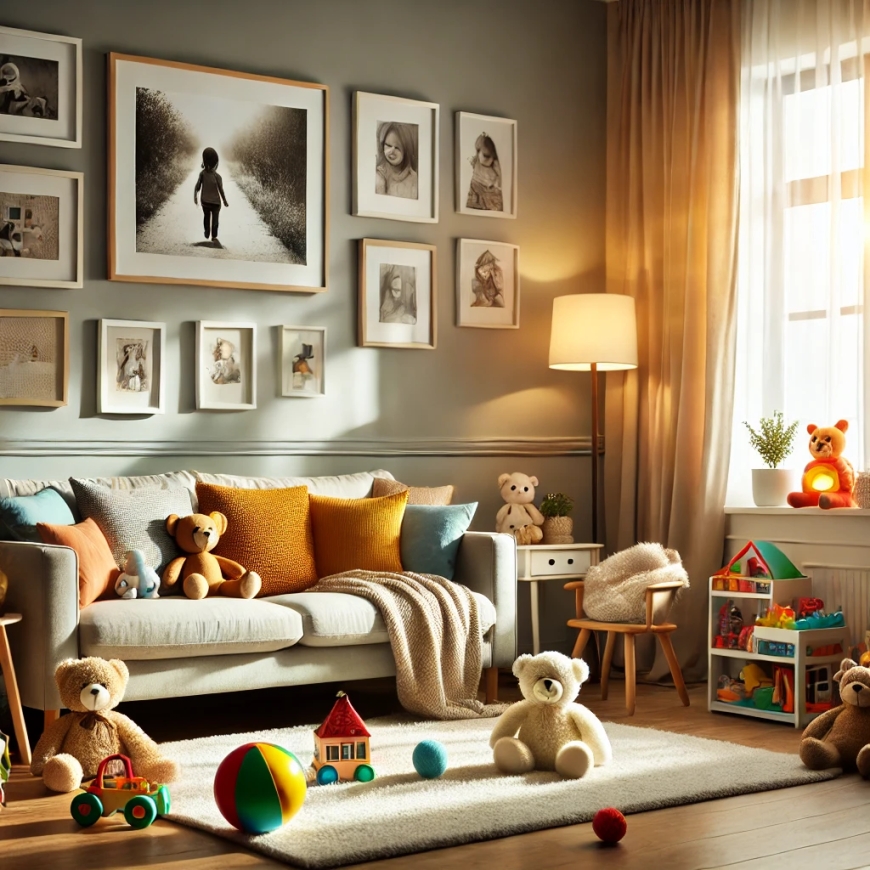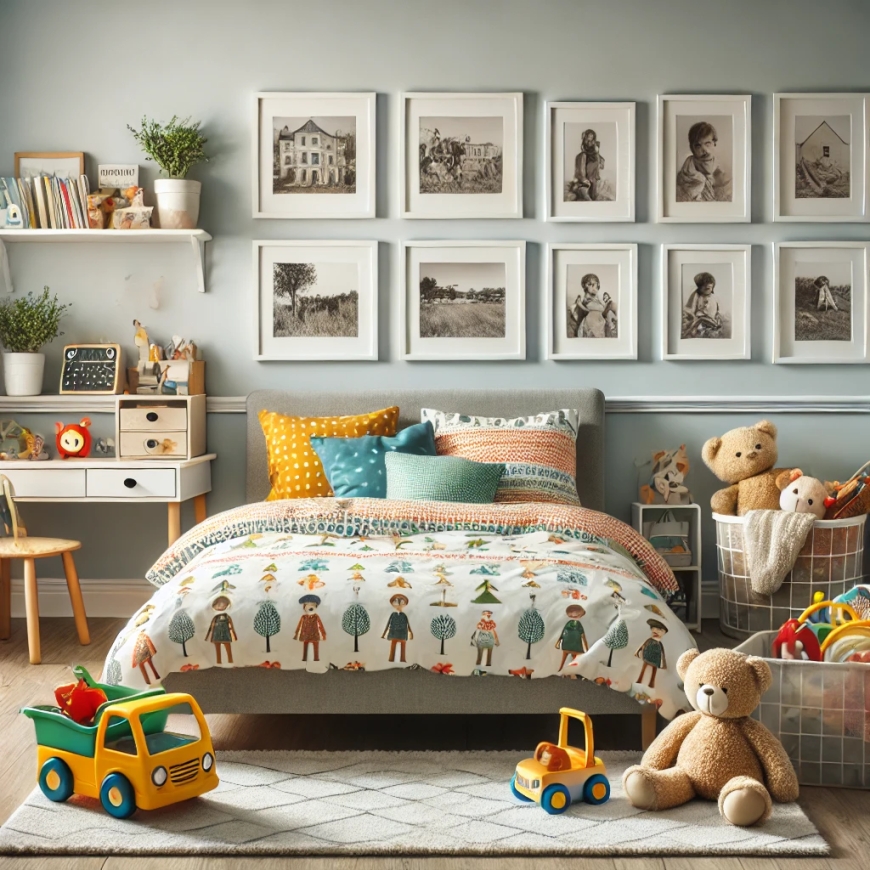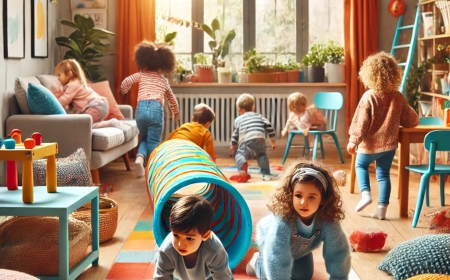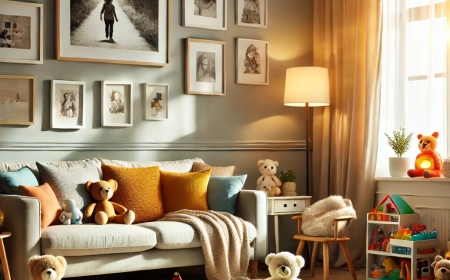Building the Right Environment for Your Children
Creating the right environment for your children after a breakup is crucial for their well-being and development. Drawing from my own experiences, I hope to set a meaningful baseline for this topic. As we explore further, I’ll provide tailored advice for various situations and circumstances.

Navigating Childcare Arrangements
During the divorce process, one of the critical areas to discuss and agree upon is the childcare arrangements, essentially, how much “custody” each parent gets. This can be deeply emotional, as it directly impacts your children's lives and your relationship with them. My ex tried to take my kids from and tried to go for 90% custody. In my case, I secured 50% custody, which, compared to many others, is quite significant. While I am grateful for the equal time I have with my children, it’s essential to use this time wisely.
Negotiating and agreeing on custody arrangements is not just about dividing time; it’s about ensuring that your children feel loved, supported, and secure in both homes. This shared custody provides a foundation for building a strong, independent relationship with your children, which is invaluable.
Children are impacted by the breakup of their parents, it something that sticks with them for their entire life, and does shape how they process things. Thats why its important you create the ideal space for them.
Balancing Responsibilities and Finances
Like most dads with 50% custody, who pay 50% of expenses (such as school trips, uniforms, and after-school clubs) and take on 50% of the responsibilities, I still end up having to financially support my ex. At the end of the day, everyone still relies on you.
Adapting to Different Living Arrangements
Everyone's living arrangements are different; some have houses, some have flats, and they all come in different shapes and sizes. For me and my children, I currently can afford a two-bedroom house, local to their schools and other amenities. This proximity to essential services makes it convenient for school runs and after-school activities, creating a stable routine for the kids. While the size and type of home can vary, what matters most is creating a safe, loving, and supportive environment where your children can thrive.
Building The Right Environment
So now that I’ve given you a baseline, let’s look at building the right environment with what we have.
Start with the Basics:
Your home needs to be clean, tidy, mould-free, and infestation-free. It’s okay if the home gets messy while the kids are there. In one of my other posts, I talked about doing a big tidy at the end of the day once the kids are in bed. However, you may have to tidy up a few things throughout the day, of course.
Creating a Special Bedroom:
Their bedroom needs to feel special, creating a happy, loving, safe, and comfortable space where they can sleep easily, relax, study, and play.
-
Beds: Ensure they are comfortable. Use themed bedding they like, have cuddly toys, ensure it smells nice, and is safe/fit for their age.
-
Decor: Make the room feel special by including their favourite toys, family photos of happy memories, bunting, themed curtains, and wall-friendly stickers. Paint it in colours they like (if allowed) and involve them in decision-making.
You’ve now built a great space for them that you can continue to enhance and make even more special.

Show Your Love:
Tell your children every day that you love them. Let them know how proud you are of them, how smart they are, and how they make you feel special.
Affirmations like these are crucial for your children's emotional and psychological development. Hearing that they are loved and valued helps build their self-esteem and confidence. It reassures them during times of uncertainty and fosters a secure attachment. Positive reinforcement from a parent reinforces their sense of worth and encourages them to strive for their best, knowing they have your unwavering support and admiration. This consistent validation helps them grow into confident, resilient individuals.
Eating Junk In Moderation
Make sure they eat healthy most of the time. Whether you like healthy foods or not, it's important for children to eat fruit and vegetables because it helps with their overall growth, immune system, and cognitive development. A diet rich in fruits and vegetables provides essential vitamins, minerals, and fiber, which are crucial for their physical and mental health. Establishing these healthy eating habits early on sets a foundation for a lifetime of good nutrition and well-being.
Socialising With Other Children
Making friends with other dads or parents from your children’s school can be beneficial for arranging play dates and helping your children expand their social skills outside of school. This helps foster a sense of community and provides your children with a support network of peers.
I understand that this might make you feel uncomfortable, especially if you're not used to socialising with other parents. It can feel awkward at first, but it's worth the effort for the sake of your children’s social development. Start by engaging in small conversations at school events, parent-teacher meetings, or during pick-up and drop-off times.
If making friends with other parents feels daunting, there are easier alternatives. Taking your children to a local park with a playground can be a simple and effective way to help them socialise. Children naturally gravitate towards each other and will often start playing together without much prompting.
Encourage your children to interact by teaching them to introduce themselves and ask other kids their names and ages. This not only helps them develop social skills but also boosts their confidence in interacting with new people. Additionally, observing your children in these settings can provide insights into their social behaviour and areas where they might need support.
Control The Technology
Studies have shown that children who spend excessive time on tablets, in front of TVs, or playing on gadgets can damage their eyesight, leading to an increase in short-sightedness.
Tablets can be fun and educational and can be used as a reward for good behaviour. Set appropriate times for when they can use their devices and encourage them to find activities that don't involve screens. For example, designate specific times for screen use, such as after homework is done or during weekends.
Encourage outdoor activities, such as playing in the park, riding bikes, or engaging in sports. Indoor activities like reading, drawing, or building puzzles can also be great alternatives. These activities promote physical health, creativity, and cognitive development.
Avoid giving tablets or any devices to your children at bedtime. Instead, read them a book. Using a device at bedtime can have numerous negative impacts, including:
-
Delayed Sleep: The stimulating content and blue light from screens can delay sleep onset, causing children to go to bed much later than expected.
-
Sleep Quality: Exposure to screens before bed can disrupt the production of melatonin, a hormone that regulates sleep, leading to poorer sleep quality and potential sleep disturbances.
-
Nightmares: Some content on devices can cause anxiety or fear, leading to nightmares and restless sleep.
Always monitor what your children are watching or playing. Ensure that the content is age-appropriate and educational. Parental control settings can help you manage what your child has access to.
What's Your Reaction?



























